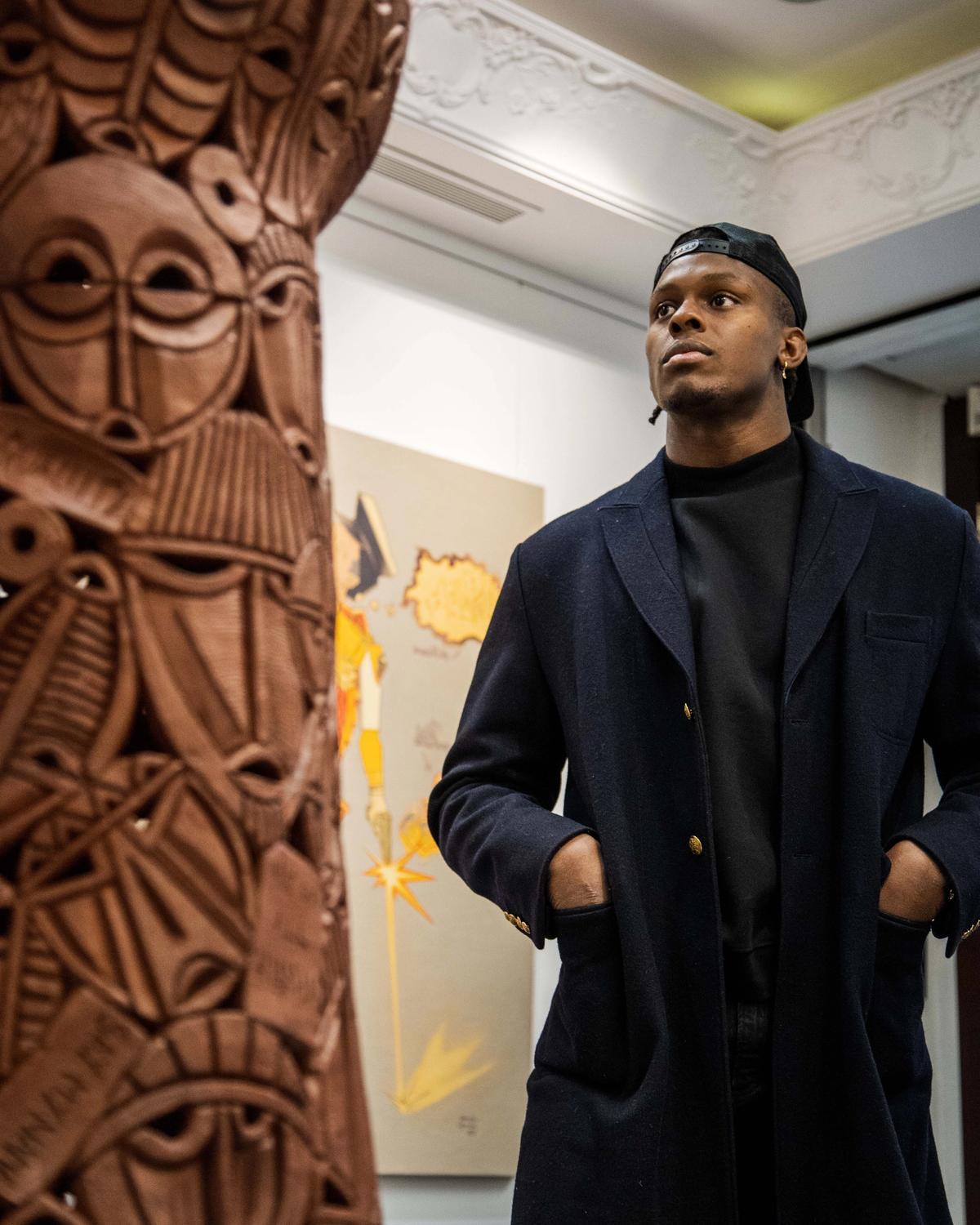The England rugby player and avid collector Maro Itoje has leant his star power, art expertise and personal experience to a new exhibition in London that shines a spotlight on some of the Black histories that are not taught in British schools.
Speaking at the opening of the exhibition earlier this month, Itoje, who was educated at the private boarding school Harrow, says one of the constants in his schooling was “the lack of Black and African history that I was taught”. Moreover, when African history was on the syllabus, it was “a single story or narrative that was told”. He adds: “That story was often depressing, and quite often a saviour/survivor narrative. I want to try and show a fuller picture.”
A History Untold, which runs at Signature African Art gallery until 19 June, features six artists from across the continent whose works celebrate the contributions Black figures have made to civilisation. The exhibition has been organised in collaboration with the art adviser Lisa Anderson, who launched the online platform, Black British Art, in 2015 to support contemporary Black British artists.
One of the pieces, by the Cameroonian ceramicist Djakou Kassi Nathalie, celebrates Africa’s contribution to mathematics, consisting of an earthenware reproduction of an ancient counting stick called the Ishango bone, used by women to keep track of their menstrual cycle.
Another work, by the Nigerian sculptor Steve Ekpenisi, represents the tradition of African metallurgy, which foreshadowed the Industrial Revolution in Europe by centuries. As Khalil Akar, the director of the gallery, points out: “Most civilisations went from the Stone Age to the Bronze Age. But, in West Africa, they skipped directly to the Iron Age. Iron manufacture really started there.”
The production of paper is foregrounded in another piece by the Nigerian artist Damilola Okhoya, which looks to Queen Amanirenas and the Meroitic script, one of the oldest writing systems in Africa. Meanwhile, a large-scale installation by Adelaide Damoah and Peter Adjaye pays tribute to their shared Ghanaian ancestry, reframing the history of Ghanaian colonialism via personal, familial lenses.
Prices range from £10,000 to around £80,000, with 15% going to towards local and national projects, including a series of public art commissions, which aim to raise awareness of the gaps in the current curriculum. Itoje, meanwhile, recently became a patron of The Black Curriculum, a social enterprise founded in 2019 that advocates for Black history programmes and teacher training.
The sports star, who regularly acquires works of art when with his parents in Lagos, says he hopes the exhibition will help push the conversation forward. “One single thing isn’t necessarily going to change the world, but together, all of these little things added together begin to make a difference. As the saying goes, ‘For every Malcolm [X] you need a Martin [Luther King]’. If we all do our part, we can make that change.”


